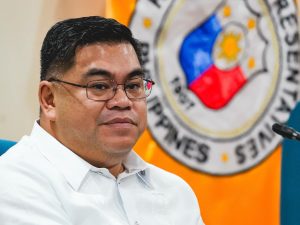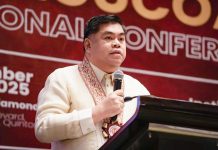
TACLOBAN CITY – Tingog party-list Rep. Jude Acidre has been appointed as a commissioner of the Second Congressional Commission on Education (EDCOM 2), the national body tasked with conducting a comprehensive evaluation of the Philippine education system.
“I am deeply honored to take on this responsibility. The future of our nation depends on a well-educated citizenry, and EDCOM 2 will play a pivotal role in ensuring that our education system evolves to meet the demands of a rapidly changing world,” Acidre said in a statement upon accepting the role.
EDCOM 2 is mandated to address critical issues such as access to education, quality of instruction, and alignment with global standards. It aims to identify gaps in the current system and recommend reforms to improve learning outcomes, teacher training, and the overall responsiveness of the education sector to the nation’s development goals.
Acidre’s appointment aligns with his long-standing advocacy for education reform. During his first term as a congressman, he, alongside fellow Tingog party-list Rep. Yedda Romualdez, championed key legislative measures focused on improving access to and the quality of education. Among these initiatives were The Local Universities and Colleges Governance Act; The Equitable Access to Math and Science Education Act; The Geographically Isolated Disadvantaged Conflict-Inflicted Areas and All Roads to All Learners Act; and the State Universities and Colleges Mental Health Service Act
These legislative efforts demonstrate Acidre’s commitment to bridging the education gap, particularly in marginalized communities.
His track record of pushing for systemic change further positions him to bring meaningful reforms within EDCOM 2.
Acidre emphasized the importance of not only increasing access to education but also enhancing its quality and relevance in today’s global economy.
“We must focus on more than just expanding access. We need to improve the quality of education and ensure it aligns with the skills and competencies required in the 21st century. This is a critical moment to reimagine the future of education in the Philippines,” he said.
(LIZBETH ANN A. ABELLA)



